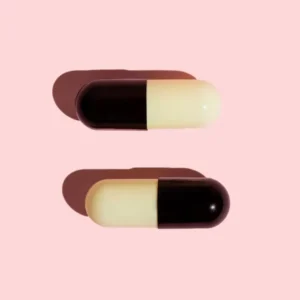
Relief from Recurrent UTI
Recurrent UTIs—defined as two or more infections in six months or three or more in a year—signal a deeper underlying imbalance. Research shows that repeated antibiotic use disrupts the microbiome, making future infections more likely. More alarmingly, chronic UTIs are now linked to an increased risk of bladder cancer, highlighting the importance of breaking the cycle.
The traditional medical model treats each UTI as an isolated event, failing to recognize the broader physiological patterns that contribute to chronic urinary tract inflammation. Instead of relying on repeated antibiotic use, a science-backed approach must focus on:
- Restoring microbiome diversity – A diverse microbiome protects against pathogenic colonization in the urethra and bladder.
- Reducing inflammation – Chronic bladder irritation makes the urinary tract more susceptible to infection.
- Optimizing hydration and nutrient absorption – Proper hydration supports kidney function, reducing the buildup of acidic waste that damages urinary tract tissue.
One of the biggest challenges with recurrent UTIs is bacterial biofilm formation—a protective layer that allows bacteria to survive antibiotic treatments and re-emerge later. Pathogenic bacteria like E. coli can embed themselves into the bladder wall, evading immune detection and making infections difficult to fully eliminate.
Emerging research highlights the role of urinary pH in infection prevention. A more alkaline environment reduces bacterial adhesion, while dehydration and acidic urine promote biofilm development. Proper fluid intake, along with specific anti-inflammatory compounds, can help flush out biofilm-associated bacteria and restore bladder health.
Our Recurrent UTI Relief Plan is formulated to break the cycle of chronic infections by addressing both the root causes and symptoms, focusing on microbiome restoration, inflammation reduction, and urinary tract resilience. By targeting bacterial biofilm formation and optimizing urinary pH, this approach disrupts the conditions that allow infections to persist. The regimen includes three key ingredients: D-mannose, Uva Ursi (Bearberry), and Berberine. D-mannose helps maintain a balanced urinary pH, inhibits bacterial colonization, and prevents harmful pathogens from adhering to the bladder wall, reducing the risk of reinfection. Uva Ursi (Bearberry) contains arbutin, which is converted into hydroquinone in alkaline urine, acting as a natural antimicrobial agent that suppresses bacterial overgrowth while also providing anti-inflammatory benefits. Berberine plays a dual role in modulating gut microbiota and reinforcing the bladder’s protective barrier, preventing bacterial adhesion and lowering the chances of recurrent infections. Together, these ingredients support a science-backed, long-term solution that goes beyond symptom management to restore urinary tract health and prevent future infections.
